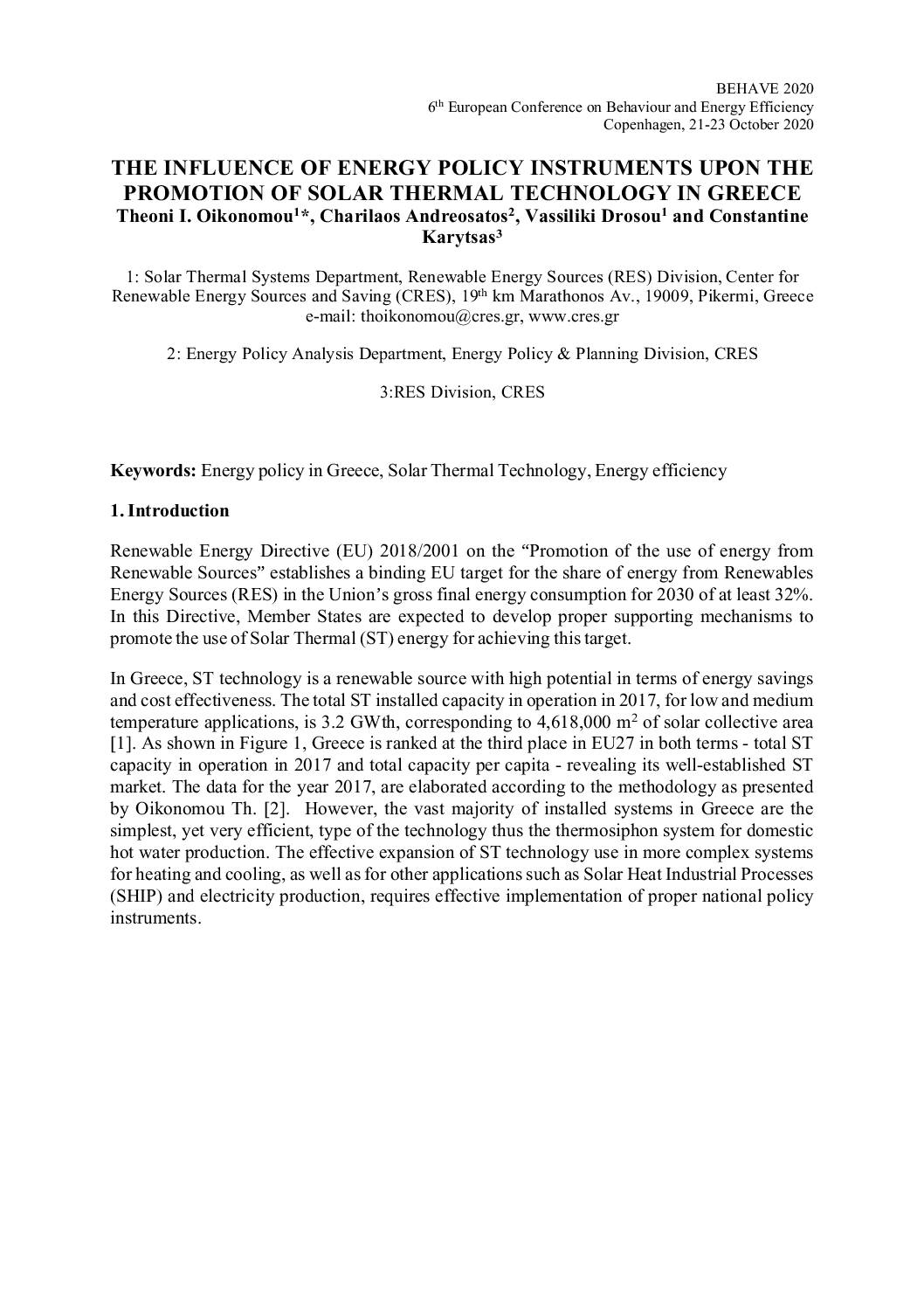Renewable Energy Directive (EU) 2018/2001 on the “Promotion of the use of energy from Renewable Sources” establishes a binding EU target for the share of energy from Renewables Energy Sources (RES) in the Union’s gross final energy consumption for 2030 of at least 32%. In this Directive, Member States are expected to develop proper supporting mechanisms topromote the use of Solar Thermal (ST) energy for achieving this target.
In Greece, ST technology is a renewable source with high potential in terms of energy savings and cost effectiveness. The total ST installed capacity in operation in 2017, for low and medium temperature applications, is 3.2 GWth, corresponding to 4,618,000 m2 of solar collective area. As shown in Figure 1, Greece is ranked at the third place in EU27 in both terms – total ST capacity in operation in 2017 and total capacity per capita – revealing its well-established ST market. The data for the year 2017, are elaborated according to the methodology as presented by Oikonomou Th. However, the vast majority of installed systems in Greece are the simplest, yet very efficient, type of the technology thus the thermo siphon system for domestic hot water production. The effective expansion of ST technology use in more complex systems for heating and cooling, as well as for other applications such as Solar Heat Industrial Processes (SHIP) and electricity production, requires effective implementation of proper national policy instruments.
Share this

Sector: Renewables
Country / Region: Europe, Greece
Tags: air conditioning, electricity generation, heating, heating and cooling, implementation, ships, solar, solar thermal, targets, water resourcesIn 1 user collection: Session 4b: Behaviour integration into energy modelling for policy development – 1
Knowledge Object: Publication / Report
Author: Theoni I. Oikonomou, Charilaos Andreosatos, Vassiliki Drosou and Constantine Karytsas
Content:

